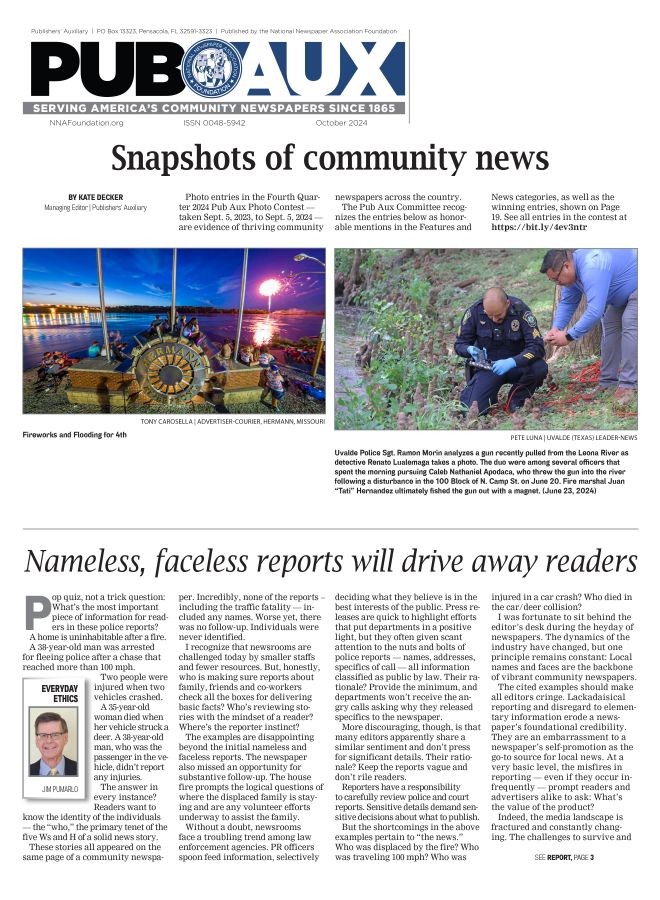From farmers to politicians, a call for immigration reform in GA
May 1, 2015
By Lauren McDonald
NNAF News Fellow | University of Georgia
WASHINGTON—The Vidalia sweet onion harvest has just begun, and local farmers are working hard to get the first crop ready to ship all over the world.
But in order to handpick every onion, the farmers need help.
Thanks to the H-2A temporary agriculture program, a type of work visa which allows immigrants to come into the area and work on the onion farms, R.T. Stanley has been able to keep his harvest on schedule this year.
“We have to do that just to get enough labor to do this hand-harvesting in the field,” said Stanley, the owner of the largest onion farm in Toombs County, GA. “We can’t find any local people that’s willing to do that anymore. We bring in the H-2A workers from another country. And when they get through with the job, then we send them back ….”
The $100 million Vidalia onion industry depends on the H-2A visa program, Stanley said.
“The H-2A is about the only way I can get enough labor to harvest these onions, and it’s pretty complicated and a lot of red tape involved, and all kinds of rules and regulations.”
But the H-2A program is riddled with issues, not only for farmers, but for the local undocumented immigrant community and its advocates, as well. And this is only a small fragment of the larger immigration debate going on across the country.
A Broken System
The majority of politicians today agree that the U.S. immigration system is broken.
While Republicans and Democrats continue to argue in Washington about how to best address this issue, the call for a solution can be heard all the way from Vidalia, GA.
“I’ve been farming for 51 years, and the fun is about gone out of farming because of all these rules and regulations,” Stanley said. “You just can’t enjoy working without having to look over your shoulder and worrying about having some kind of a lawsuit or some kind of a penalty or fine you got to pay for not having everything just like it’s supposed to be.”
Stanley said he would like to see the district’s recently elected Rep. Rick Allen, R-GA, reform the overly complicated, expensive H-2A program.
“I’d like to see him get legislation passed to upgrade this H-2A program to a guest worker program so that it would not be so expensive and so hard to get workers over here as we need them,” Stanley said.
In order to address the needs of his constituents, Allen said he has crafted his stance on immigration reform around the need to fix the work visa program.
Stanley said Allen has already helped him get workers to Vidalia.
“He helped me get my workers over here this year because we had a lot of red tape and paperwork that they wanted to give us a problem with at the border,” Stanley said. “Allen made some calls, and he got them to speed up the process.”
Allen said the H-2A visa program is the best legal way for farmers to make use of immigrant labor, and the program is therefore vital for Georgia’s agriculture industries. But the issue, he said, is that the program currently falls under the Department of Labor.
“The Department of Labor, like most government agencies, can sometimes make that difficult,” Allen said. “They have to sign off before those contractors can show up to do their work.”
Although Allen has not yet had an opportunity to vote on legislation, he said he wants to move supervision of the H-2A visa program to the Department of Agriculture.
“The Department of Labor doesn’t know anything about agriculture,” Allen said. “And the Department of Agriculture knows the needs of our farmers. The mission of the Department of Labor is to produce jobs for domestic workers, and as far as the Department of Agriculture is concerned, it’s about food needs. Without this program, we would have an issue as far as our food supply is concerned.”
He said the Department of Agriculture understands the deadlines involved in getting labor workers to farms.
“There’s a timeline as far as picking these fruits and vegetables, and they would be very sensitive to that timeline and of course the needs of the farmer and the needs of making this program work better,” Allen said. “This program can be very complex for our farmers. The compliance issues are massive, and I think the Department of Agriculture would probably be able to simplify that process a little bit.”
A Nationwide Issue
But simply revising the H-2A program will not fix the country’s damaged system.
Since President Barack Obama announced the new Deferred Action for Parental Accountability program in November 2014, his administration has been locked in a fierce battle with the Republican party about the legality of his actions.
Obama said he had the legal authority to create this deferred action program, which allowed the Department of Homeland Security not to deport certain undocumented parents of U.S. citizens. But many Republicans have argued the program is unconstitutional.
“I’m certainly opposed to any of the executive actions of the president,” Allen said. “He admitted some 22 times that he didn’t have the authority to do what he did, and then he does it.”
Conn Carroll, the White House correspondent for Townhall.com, a conservative news outlet in Washington, said the DAPA program essentially rewrites immigration law by granting legal status to 5 million undocumented immigrants.
“It normally would take a law to say we’re going to let the people that are in the country now stay, and we’re going to change our prioritization of who we deport, and normally that’s something that goes through the House and the Senate and is signed by the president,” Carroll said. “But that’s not what Obama did.”
But according to the Obama administration, DAPA, along with the Deferred Action for Childhood Arrivals program Obama enacted in 2012, does nothing more than allow the Department of Homeland Security to prioritize its deportations.
“It’s not giving people immigration status, it’s not giving them a pathway to citizenship, it’s not giving them a pathway to a green card,” said a White House official. “It’s basically saying ‘You’re here for three years, and you won’t be deported, assuming you follow all the criteria.’”
Eleven million people are estimated to be living in the country illegally today, and this program allows the DHS to use its resources more efficiently.
But Republicans, including Georgia Sen. Johnny Isakson, who has worked on immigration reform policy for many years, say that Obama has poisoned the well by using his executive action authority to create this program.
“I am for fixing our entire immigration system, rather than doing it piecemeal,” Isakson said. “I think the president has done a great disservice to the goals that he himself espouses.”
Isakson said Obama’s executive actions on immigration reform, just as those of previous presidents, will die as soon as his term ends.
“Every executive order dies with the term of that president,” Isakson said. “Executive orders do not have the force or effect of law in terms of longevity.”
The only permanent solution would have to come from Congress, through legislation.
“Although the president acted on his own, we cannot compare it to what comprehensive legal reform can do, because that’s actually fixing it. That’s actually providing a path to citizenship, which he cannot do on his own,” said a White House official.
In 2013, the Senate passed a bipartisan, comprehensive bill to reform the immigration system in the U.S. The bill included border security enforcement, consideration of the children born to illegal immigrants, as well as the option of a long-term pathway to citizenship.
But the House leadership refused to allow the bill on the floor for a vote.
“We were extraordinarily disappointed when the House of Representatives didn’t have this debate around immigration,” said Laura Vazquez, a senior immigration legislative analyst for the National Council of La Raza, a Hispanic advocacy organization in Washington. “We thought it was a failure to do their job, because we know there were enough votes to pass the legislation.”
This failure led to Obama’s controversial executive action last November. However, even the Obama administration agrees that the only way the immigration system in the U.S. will be fixed will be through legislation.
“Lots of different folks who have a stake in immigration reform didn’t get their issues addressed through the president’s actions—they need legislation,” Vazquez said. “There’s still absolutely, 100 percent, a need for legislation that provides for us a permanent path to citizenship for folks.”
The ball’s in Congress’ court.
Vidalia Onion Harvest at Risk
Until Congress passes legislation, Vidalia’s economy will continue to feel the effects of the broken system.
Every year, Stanley said, he struggles to find enough labor to harvest his 1,600 acres of onions.
Most of Stanley’s laborers come from Mexico. Each year, he pays to bring about 200 immigrant workers to his farm to pick onions.
But even for the owner of the Vidalia’s largest onion farm, the system is difficult to manage. Stanley said he is not satisfied with the current work visa program.
“Just make it simple, and not so expensive. It’s very expensive to make this program work, and it could be made a lot better,” he said.
In accordance with labor regulations, Stanley funds transportation to bring immigrant workers from Mexico, providing them with lodging and helping them return to the border when their contract ends.
According to regulations, Stanley pays his H-2A workers at least $10 an hour.
This program is more expensive than hiring local workers, he said, but he cannot find local people who will do the required manual farm labor.
“I try every year to get as many locals to work as I can,” Stanley said. “But I am not having any success at getting them to work if it’s out in the field.”
Andrea Cruz, executive director of the Southeast Georgia Communities Project and an advocate for the local Latino community, said the challenge of finding local labor is not because of a lack of interest.
Local immigrants who live permanently in the area and are not part of the H-2A program want to do the work. But they are denied the option because they are undocumented.
“Many times, they don’t come to these positions because they don’t have legal documentation, therefore putting these people basically out of work and under a lot of pressure,” Cruz said.
She said the program steals jobs from the local, undocumented immigrants in the state.
“The Department of Labor has to prove to the government that there is a lack of workers in the community so that they can qualify to bring in guest workers from another country,” Cruz said.
The willing workers are just trapped in the shadows.
“We have too many people who are hiding out due to their legal status,” Cruz said. “We have a lot of people that you can’t really identify because they’re not going to sign a document for anybody, especially for a federal agency that’s asking for information.”
She estimates that about 20 percent of Toombs County is Latino.
Uvalda Mayor Paul Bridges, who has lobbied in Georgia and in Washington for immigration reform, said the state of Georgia depends upon immigrant labor, but laws have made it overly difficult for them to do the work.
“My advocacy is to help Georgia people understand that the undocumented community are the foundation of our economic stability in Georgia,” Bridges said. “In Montgomery County, the only product produced in the entire county is agriculture.”
John Robison, a farmer who also uses immigrant labor to harvest onions each year, said Obama’s proposed plan could improve the system greatly in Vidalia by allowing undocumented workers to come forward and apply for the jobs.
“The people in D.C. could be a little more friendly toward these people,” Robison said. “Give them an opportunity to come out of the shadows and get a Social Security number and get a driver’s license, and they make a record of them.”
He said he would like to see members of the immigrant community in Vidalia put on a temporary pathway to citizenship.
“I think it’s basically what Obama’s trying to do,” Robison said. “That’s one of the few things that I agree they need to do, assuming there’s no criminals or felons in the bunch. If there are, they need to be sent back immediately.”
But Allen said there is currently no provision in the law for a pathway to citizenship for undocumented immigrants in the country, and he does not support creating one until the border has been secured and the illegal immigrants in the country have been deported.
“That’s the first step, and obviously then we’re going to have to abide by the current immigration law,” Allen said. “Or, we’re going to have to amend it or make it work with a secure border.”
Part of the Community
The necessary solution has proven to be more complicated, though. Undocumented immigrants not only have become vital for local economies around the country, including that of Vidalia, but they also have become members of our communities.
“It’s not that all undocumented people are living in an apartment building, and if you just deport everyone from that apartment building, that’s the population that you’re touching,” Vazquez said. “We know that undocumented immigrants are married to U.S. citizens, they have U.S. citizen children, they are working with U.S. citizens.”
Vazquez said immigration reform goes beyond Capitol Hill. It seeps into communities everywhere, just like Vidalia’s, and touches nearly every U.S. citizen.
“An important part of telling this story about immigration is that it’s not just about undocumented individuals, but also about the communities that they’re living in and that they’re contributing to,” Vazquez said. “This is an issue that touches people’s lives.”
In Vidalia, Bridges said he knows several immigrant families who each day live in fear of being deported.
“It’s a true, real fear,” Bridges said. “It’s like a terrific fear. The kids come home from school not knowing if their parents are going to be home or not. That’s just a horrible place.”
He said even if Allen will not support Obama’s DACA and DAPA programs, which could temporarily relieve undocumented immigrants of this constant anxiety, he expects to see Allen address the issue in some way that will benefit the district.
“I really would like for Mr. Allen to get behind legislation that would fix this problem,” Bridges said. “The least he could do is to propose something to give immediate relief that the people who are here can be identified and can be relieved from the fear of deportation.”
Waiting For a Solution
As the debate rages on in Washington, Georgia will continue to suffer from the ramifications of a broken immigration system.
“From picking onions in Vidalia or pulling peanuts in Statesboro, that’s a labor-intensive business,” Isakson said. “And if we don’t have the laborers that are getting in here legally to do it, the crops rot in the fields.”
Farmers, advocates and politicians agree—the system needs to be repaired. The disagreement comes when discussing how to fix it.
“Republicans and Democrats have failed on the immigration system, there’s no question about that,” Isakson said.
For the Vidalia farmer, this failure forces him to navigate through a sea of red tape in an immigrant labor system that no longer works.
“The H-2A program needs to be revised and made more easy for the small farmer of five or 10 acres to be able to use,” Bridges said. “Right now, it’s just too bureaucratically cumbersome for a small farmer to use—in fact, it’s impossible many times. And the larger farmers, like Stanley Farms, they can operate within the strict confines of that program, but even with that it’s difficult.”
Without the immigrants who come into the community each year, the Vidalia onion industry would fail.
“If we did not get this labor, we could not grow Vidalia onions,” Stanley said. “We could not get them harvested without the labor force.”







